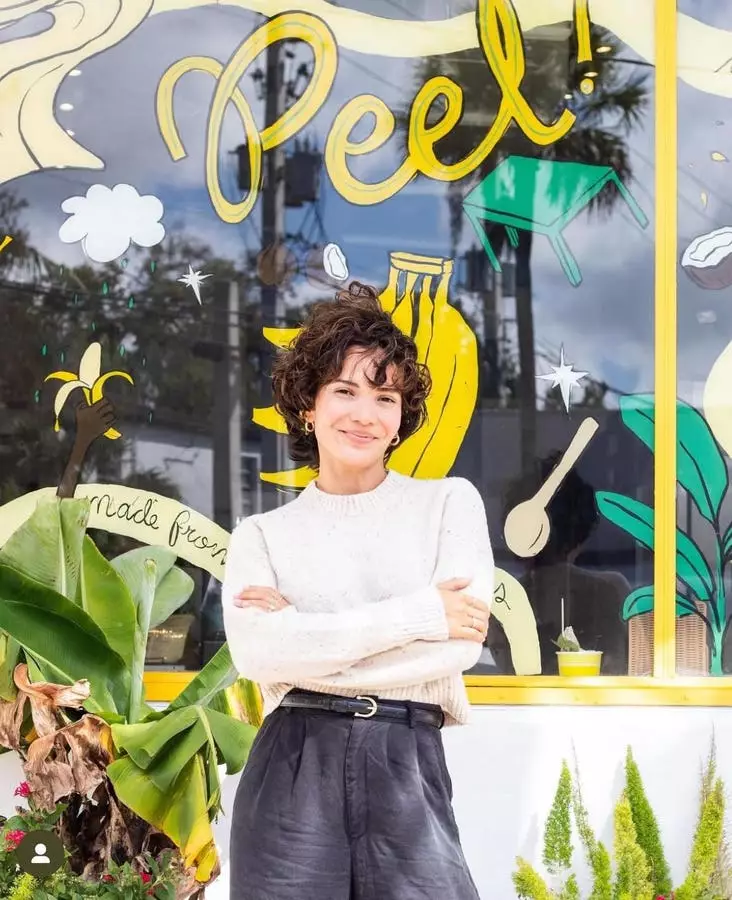In a world obsessed with perfection, Peel’s innovative approach turns the standards upside down, demonstrating that imperfection can be a source of beauty and sustainability. Rather than conforming to societal ideals that often discard bruised or blemished produce, Peel boldly champions the cause of “ugly” fruit—a concept that’s both refreshing and rebellious. This shift is more than a marketing gimmick; it’s a statement against wastefulness endemic in the food industry. By reimagining these overlooked bananas as the heart of a creamy, indulgent soft serve, Peel not only diminishes waste but celebrates authenticity.
What’s particularly compelling about Peel’s philosophy is its direct challenge to aesthetic standards that dominate modern consumer culture. Society’s fixation on picture-perfect produce and food items has fueled enormous levels of unnecessary waste, with edible but “imperfect” fruit often relegated to compost or discarded. Peel’s decision to utilize bananas that would otherwise be thrown away exemplifies a bold ethos—that true beauty lies beyond surface appearances. This perspective invites consumers to rethink their perceptions of value and craft a narrative that elevates the “unattractive” into an emblem of environmental consciousness and creative expression.
From Concept to Movement: The Power of Purpose-Driven Entrepreneurship
Valeria Alvarez’s journey exemplifies how passion, combined with a clear mission, can catalyze real change. Her inspiration from Southeast Asia’s vibrant markets underscores a universal truth: effective innovation often stems from observing everyday practices ripe with elegance and utility. Alvarez’s epiphany about repurposing blemished bananas evolved beyond mere curiosity into a tangible business model rooted in sustainability and joy.
Despite a background in tech and marketing, Alvarez’s evolution into the food space underscores her innate entrepreneurial grit. Her partnership with her husband, Marshall—whose scientific acumen complemented her creative instincts—created a powerful synergy that propelled Peel forward. Their collaborative experimentation with ingredients and sourcing from local suppliers reflects a nuanced understanding of both quality and community engagement. This union of purpose and practice is critical; it shows that sustainable innovation requires more than intention—it demands integrity, craftsmanship, and a genuine respect for the material.
Moreover, Peel’s early success, rapidly snowballing from a farmers’ market stall to multiple locations and high-profile collaborations, underscores the importance of authentic values in branding. In a crowded food landscape, Peel’s aesthetic—minimalist yet playful—acts as a visual shorthand for its mission. Every brand partnership, from luxury fashion brands to local lifestyle companies, is carefully curated, reinforcing that alignment of values is crucial. For Alvarez, success isn’t just about making tasty treats; it’s about fostering a community and sparking a movement that encourages consumers and industry peers alike to question the status quo.
Creativity, Culture, and Connection: The Heartbeat of Peel
More than simply offering a product, Peel has become a social and cultural hub—a “third place” where people gather, connect, and find joy. This emphasis on community-building signifies a deeper understanding of food’s role as a facilitator of human experience. It’s not just about satisfying cravings; it’s about creating happiness, comfort, and shared moments. The banana-shaped smile in Peel’s logo symbolizes this intent—deliberately cheerful and approachable, signaling that this is a space for lightheartedness amidst everyday routines.
Alvarez’s focus on crafting an atmosphere that emphasizes fun and lightness disrupts the typical health-food narrative, which often leans into guilt and restraint. Instead, Peel champions the idea that sustainability and enjoyment are not mutually exclusive. Its vibrant flavors, quirky collaborations, and playful branding cultivate an environment where indulgence meets responsibility. The collaborations with brands like Gucci and Glow Recipe highlight Peel’s ability to infuse luxury and innovation into simple, accessible treats—making sustainability feel aspirational rather than burdensome.
Crucially, this approach recognizes that consumer values are shifting. Today’s buyers seek authenticity, joy, and purpose, often favoring brands aligned with their ethics. Peel’s integrations with high-end fashion labels underline that sustainability and style can coexist, redefining what luxury means in the modern age. Alvarez’s mantra—“When it stops being fun, it’s time to reconsider”—reminds us that true innovation stems from passion and a sense of play.
Sustainable Practices with a Personal Touch
While Peel’s environmental commitments—rescued bananas, composting, and biodegradable packaging—are admirable, Alvarez’s candid acknowledgment of the challenges ahead showcases her honesty and realism. Scaling sustainable practices remains an ongoing dilemma for many eco-conscious brands. Nonetheless, her community-driven initiatives, like fruit rescue programs, highlight a collective approach to environmental responsibility that inspires broader change.
The company’s dedication to reducing waste extends beyond just bananas; it encapsulates a philosophy that small, mindful actions can have ripple effects. By inviting customers to participate in fruit rescue activities, Peel fosters a sense of collective ownership and responsibility, transforming consumers into active participants in sustainability. This participatory model not only builds loyalty but nurtures a cultural shift—one that proves even the simplest gestures can be meaningful and impactful.
Peel’s journey exemplifies that successful brands today are those that dare to be authentic, fun, and purposeful simultaneously. It’s a reminder that innovation rooted in social consciousness can thrive when paired with genuine storytelling and community engagement. Alvarez’s vision isn’t just a business plan; it’s a mission to reimagine what modern entrepreneurship can achieve—one banana, one smile, at a time.


Leave a Reply